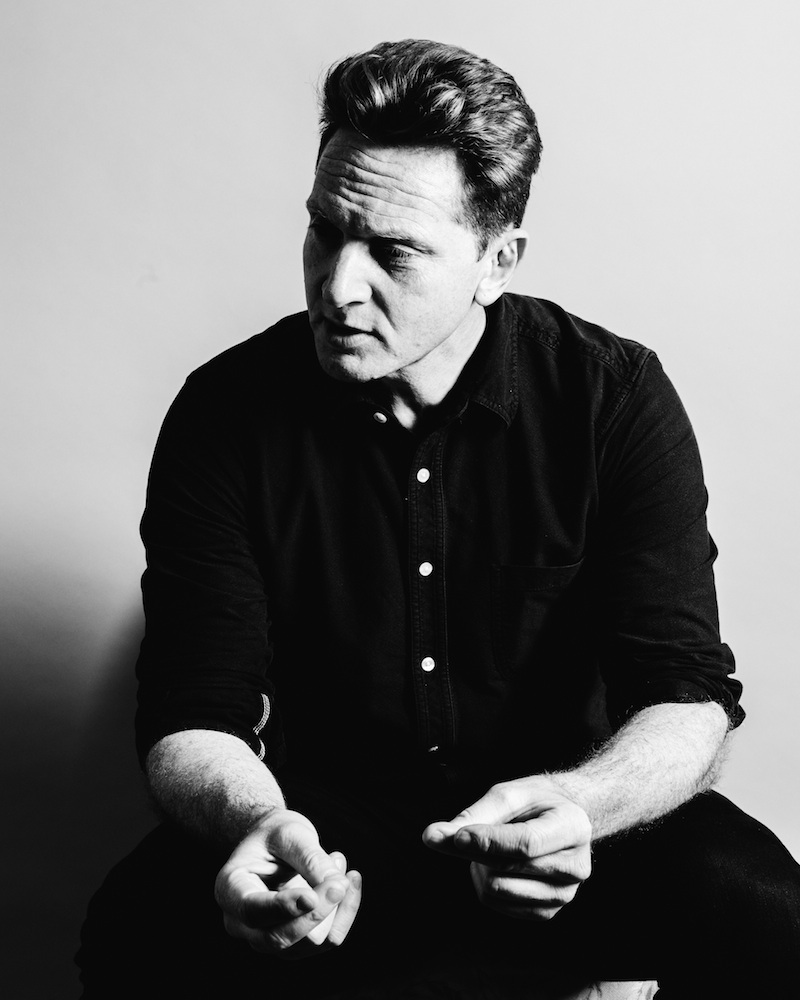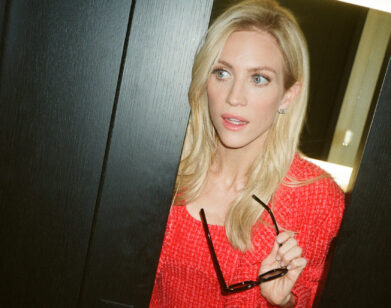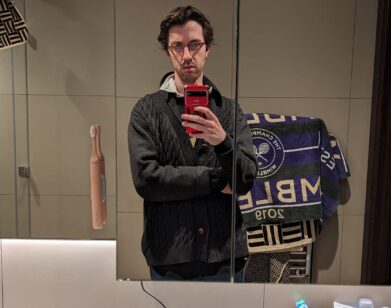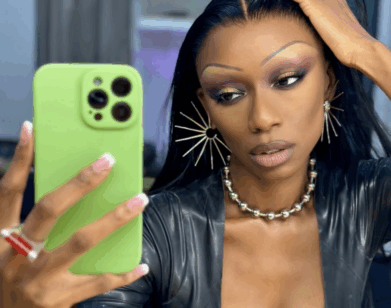Matt Ross, Off Screen

MATT ROSS IN LOS ANGELES, JUNE 2016. PHOTO: CARA ROBBINS.
At the center of Captain Fantastic, Matt Ross’s second film as a writer-director, is an unconventional family living in the woods in the Pacific Northwest. There is the patriarch, Ben, played by Viggo Mortensen, and his six children Bodevan (George MacKay), Kielyr, Vespyr, Rellian, Zaja, and Nai. Together they hunt, fish, exercise, study, and celebrate holidays such as Noam Chomsky Day. Notably absent is Ben’s wife, recovering from an illness with her estranged parents.
Whether Ben is a “good” father or not is a tricky question. He spends time with his kids, provides them with a loving, tight-knit family environment, and makes sure they are fit, healthy, and stimulated intellectually. He prioritizes his paternal duties and is determined to give his children the tools they need to go out into the world as independent thinkers. As much as Ben’s children are precocious, however, they are also incredibly sheltered. While they clearly they adore him, they also feel the weight of his love and expectations.
But, even if you find yourself judging Ben’s parenting tactics, it quickly becomes irrelevant. As Ross’s narrative unfolds, you find yourself rooting for him, for a happy ending. “I was conscientious of trying to create something that I felt had earned its hopeful nature,” explains Ross over the phone. “We usually think of things that are hopeful or optimistic in the context of sentimental crap. Things are not earned,” he continues. “When I was younger, I thought the only thing that was authentic was life negating or nihilistic. The older I’ve gotten, the more I want to create art or be involved in art that is the opposite—I want to do something psychically positive.”
A graduate of Julliard, Ross began his career as an actor in films like The Last Days of Disco, American Psycho, Down With Love, Good Night and Good Luck, and The Aviator, and television shows like Big Love. He was already in his forties when made his feature-length directorial debut with 2012’s 28 Hotel Rooms. In spite of Captain Fantastic‘s festival circuit-success—it screened earlier this year at Sundance and picked up the Un Certain Regard Director’s Prize at Cannes—he is most well known today as Galvin Belson on HBO’s Silicon Valley.
EMMA BROWN: Viggo has said that, initially, he wasn’t sure if he could participate in the film but you were quite persistent. What made you push for Viggo rather than move on to another actor? I know you’ve said you didn’t write the role with him in mind.
MATT ROSS: Superficially, I thought he was physically right for the part. I needed someone who was a certain age and certain temperament and was physically fit, who was highly intelligent. He’s all of those things. Really, I had been a long admirer of his work; everything I had read about him led me to believe he had a great deal of integrity. We are defined as much by the things we choose to do as the things we choose not to do, and the things he had chosen to do I thought were all pretty tremendous pieces of art. I had been fan of his acting since The Indian Runner. I think he’s pretty choosey and I was very fortunate he wanted to do the movie. I think your lead actor is a statement of purpose in a way, or a statement of artistic intent. I wanted to go out there with someone who I thought was a great artist.
BROWN: I read that you made short films when you were growing up.
ROSS: I started making short films when I was about 11 or 12. My mother was part of starting a bunch of alternative living communities. They weren’t communes in the way that we use the word “commune.” For a lot of people, I think it conjures up a ’60s idea of hippie communes. This was the ’80s and these people were not hippies. Some houses had electricity, some house had plumbing, some houses had neither. I lived in a teepee at one point.
BROWN: Did you enlist your friends to be in your films or were you a one-man show?
ROSS: Yes, I enlisted my friends. When you’re 11 or 12 years old—you can imagine what the movies are. I made a bunch of them. I think one of them was about chairs that killed people. I made a killer chair movie. I’m sure I was recreating things I was seeing in actual movies or making up these half-baked ideas.
BROWN: How did you become interested in making movies? Did you ever go to the cinema?
ROSS: Yeah. I think Lawrence of Arabia was one of the first things I saw. My mom took me to some revival house and it blew my little mind. She took me to some other movies that were probably inappropriate as well. I remember being swept up with these primal human dramas and wanting to be in them or make them—both, I think. I wanted to experience them and I wanted to live them. I remember seeing theater when I was a child too. I remember seeing Richard III and being absolutely blown away by it.
BROWN: What made you decide to go to Julliard?
ROSS: I think the most honest answer I can give you is when I was really young, what I should have been doing was making and writing stories about being that age, being in high school and college. I was associated with theater; I had been introduced to Shakespeare and Chekhov and Shaw, and contemporary American playwrights like Sam Shepard, David Mamet. I had seen a great deal of dramatic literature in theater, and I felt like I had nothing to add to that. I felt like my voice was very insignificant; I didn’t feel brave enough. I also loved acting and I love actors. I love theater. I think at the time I actually got into film school as well. I went to Julliard and afterwards I went to film school for a hot second and dropped out. I didn’t have money. I ended up using the first money I made as an actor to make short films.
BROWN: Was there a particular event that made you feel like, “I actually have stories to tell. I’m going to pick the pen up and start writing”?
ROSS: No, there wasn’t. I think you get to a point in your life where you’re brave enough to say, “This is what I want to do. I don’t ultimately care if people judge me or if I’m not the best.” The only way you learn is by doing. One of things that makes film school or theater school or any school worth attending is not only that you’re learning in a truncated period of time, but also you’re failing. You’re failing in a safe environment. Failure is vital and also scary. Everyone wants to be good at what they do. I couldn’t fail within the safety of the school environment but I thought, “I’ve just got to learn by doing.” Generally when we begin to do what we want to do we are flailing about in the dark. It takes us a while to learn. I gave myself permission to do that I suppose.
BROWN: When you were in films and acting professionally, did watching other directors give you confidence or make you feel more intimidated?
ROSS: It absolutely gave me confidence. I’ve been very fortunate to work with Martin Scorsese and Terry Gilliam and some really extraordinary filmmakers. I realized by watching them that everyone has their own way of working and there are as many different directors as there are people. Everyone has their own process and you need to identify what your process is. There’s no secret sauce. There’s no magic. Some people are better at their jobs than others—that’s a subjective evaluation that you can make. I learned there’s a lot of different ways of doing that and I like that. It’s not that I learned how to do it; I just witnessed it. Also we all steal from others, either consciously or subconsciously. We take the things that we see work for people and make sense to us—actors do that—and begin to make your own process on what you’ve observed. It’s instinct.
BROWN: A lot of filmmakers talk about how, as the director, your mood affects the whole crew and if you’re not feeling well, they feel it too. Did you encounter that?
ROSS: In both of my films [as a director], the most surprising thing is that you are a boss of sorts. You are navigating other people’s energy levels, navigating other people’s needs, navigating other people’s temperaments. It’s 90 percent of the job. You think it’s all creative, but in fact you are a leader of sorts. It’s such an extraordinarily difficult thing to do and I think some people are temperamentally unfit for that. I’ve learned a great deal. You have a public and a private face. On one hand you’re the captain of the ship and you have to behave as such. For me personally, that means trying to be as open and warm and inclusive as possible—being a calm and kind person. It’s so easy to forget those things. I am definitely going to get better at that as I go along. I’m certainly guilty of being stressed and filled with anxiety.
BROWN: Do you think Silicon Valley fans know that you’re a director as well as an actor?
ROSS: I would say no, they don’t. It’s a coincidence that I happen to have two careers at once; it’s a coincidence that I happen to be on a hit television show. It is my biggest to date. The truth is, and I say this frequently, I am not a famous actor. I am a semi-recognizable actor who happens to be on one television show. I think some people who are film lovers can name me in stuff, but generally speaking people have seen me in Silicon Valley and the recognize me from that. I have no problem with it.
CAPTAIN FANTASTIC COMES OUT TOMORROW, JULY 8, IN SELECT THEATERS AND WILL CONTINUE TO EXPAND NATIONWIDE THROUGHOUT JULY.






